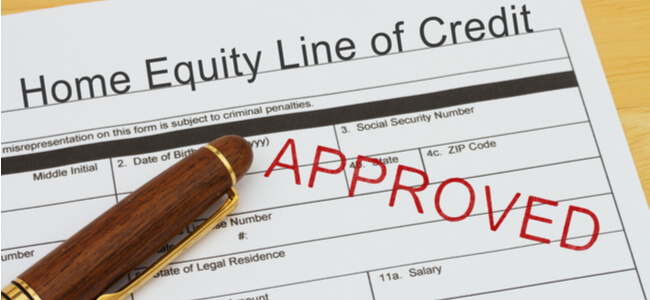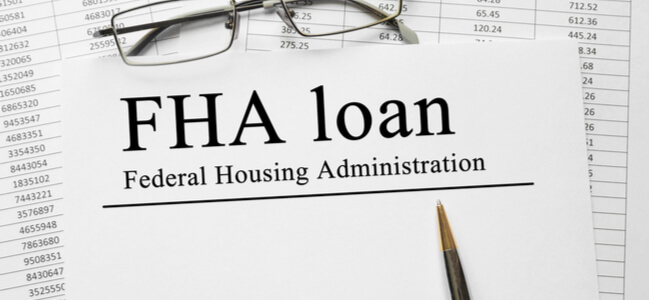How To Qualify For A Home Equity Loan With Bad Credit

Taking out a home equity loan is one way to access cash that can then be invested in your financial goals. However, not everyone has an easy time accessing this financing option.
How do you get a home equity loan with bad credit? Usually, the threshold for qualifying is stringent, although there are steps you can take to better set yourself up for success.
Continue reading to learn how to improve your chances of being approved.
What Is A Home Equity Loan?
These loans look a lot like your original mortgage. You borrow a specific amount of money and then make regular monthly payments for a fixed period, usually between five and 30 years. In the beginning, your monthly payments are applied primarily to interest, with only a small going toward the principal.
You can use these loans to:
- Cover the cost of extensive home improvement projects, such as renovations and additions
- Consolidate credit cards or personal loan debt
- Cover emergencies, such as medical expenses
- Make major repairs to your home
- Start a business
This type of loan is different from a home equity line of credit with bad credit. With the former, you borrow a set sum of money. With a home equity line of credit (HELC), you’re approved for a credit limit, which you can then withdraw from as much as you need and repay as you go.
How Does The Lender Determine How Much You Can Borrow?
The primary rule for securing these loans is that you have equity in your home. Each lender sets different requirements, but these are the usual standards:
- At least 15-20% equity in your home
- A good score in the mid-600s or better
- A debt-to-income-ratio of around 43% or less
- A financial history that demonstrates a record of paying bills on time
Your debt-to-income ratio is determined by adding up your monthly debt payments. Once you have the sum, divide that by your monthly income then convert the number to a percentage. For example, if your monthly income is $4,000 and your monthly debt payments are $1,500, your debt-to-income ratio is 37.5%.
How Much Equity Do You Have In Your Home?
To determine how much equity you have in your home, divide the amount you owe on your mortgage by your home’s current value.
If your home is worth $400,000 and you still owe $200,000, you have 50 percent equity in your home. Your lender will write this out as 50% LTV (50 percent loan to value).
Each lender establishes a different LTV maximum. They may even approve a loan application for as much as 85% of your home’s value.
If your home is worth $400,000, 85% of the value would be $340,000. Subtract the amount you still owe, for instance, $200,000, which leaves $140,000. This is the maximum amount that you can borrow against your home.
Can You Qualify For A Home Equity Loan With Bad Credit?
Even though lenders typically look for a score in the mid-to-high 600s, it’s still possible to access a guaranteed home equity loan with bad credit. Unlike an unsecured loan, a home equity loan is secured by your home. The lender knows that you’re likely to do everything possible to keep up with payments. You don’t want to lose your home. However, if you should default, they can seize your home.
It pays to shop around. Some lending institutions put more weight on your debt-to-income ratio. You usually need a good credit score for a home equity loan, but if your debt-to-income (DTI) ratio is lower, it suggests that you probably can handle the payments.
How Do You Improve Your Chances of Being Approved?
- Pull your credit report. You should be in the habit of reviewing your credit report at least once a year. If you haven’t, now’s the time to do it. Check for errors, evidence of fraud, and omitted account information. Fix any mistakes you find. This will improve your score greatly
- Minimize your utilization ratio. Try to keep your utilization ratio below 30%. Your utilization ratio is based on the total amount of credit for which you’ve been approved versus the amount you’re using. Before applying for a loan, try to bring down the balances on your revolving debt
- Avoid taking on any new debt. Hard pulls on your report can negatively impact your score. Also, recent applications for new cards or personal loans could indicate that you’re having financial problems. This will hurt your chances of being approved for a home equity loan
- Add a co-signer. If your co-signer has a good score and a DTI ratio more in line with what the lender would like to see, this can help improve your chances of being approved. Remember that both of you will be responsible for repaying the debt
The Bottom Line
A home equity loan is like a second mortgage. The chief requirement is that you have equity in your home. Lenders have different standards as to the percentage of equity required and the loan-to-value ratio.
It’s possible to qualify for a home equity loan with no credit check or with poor credit. Still, it depends on how much equity you have in your home and your debt-to-income ratio. Make sure your report is accurate and if necessary, find a reliable person to serve as a co-signer.



